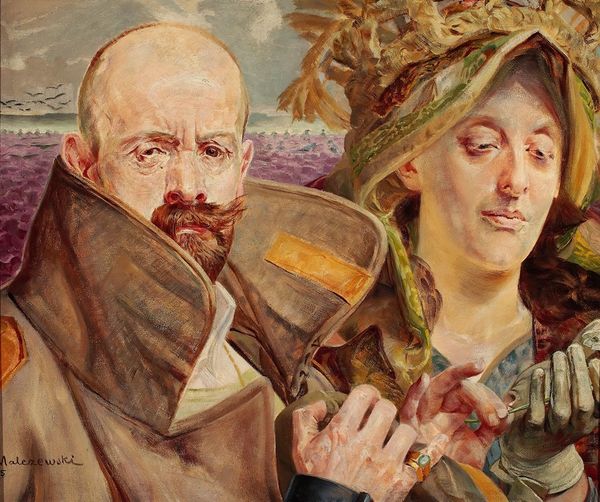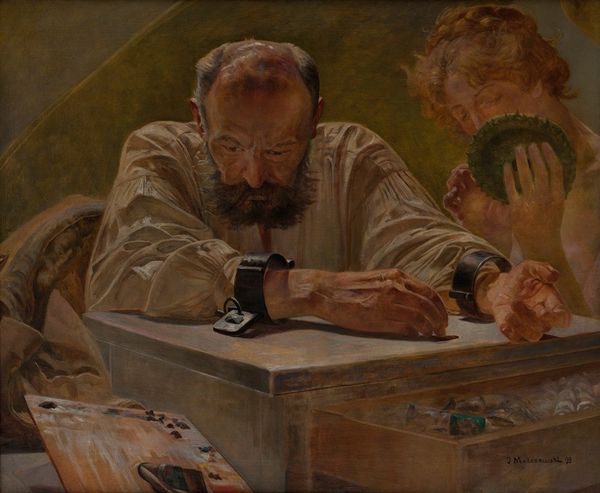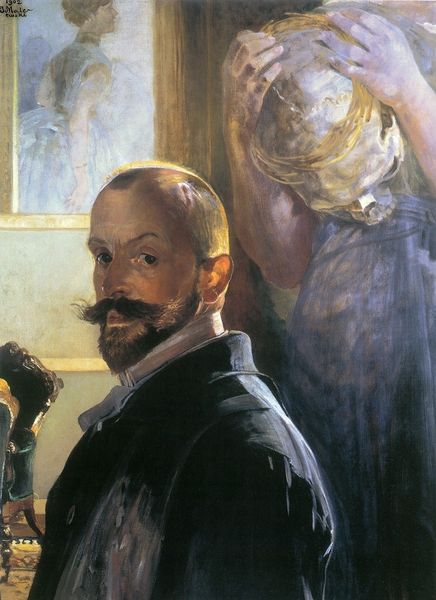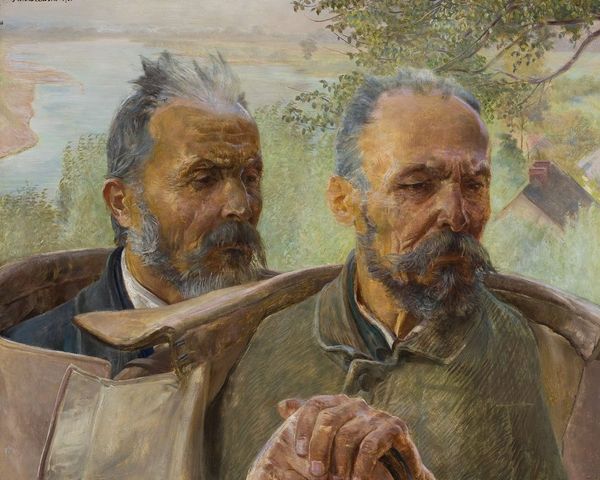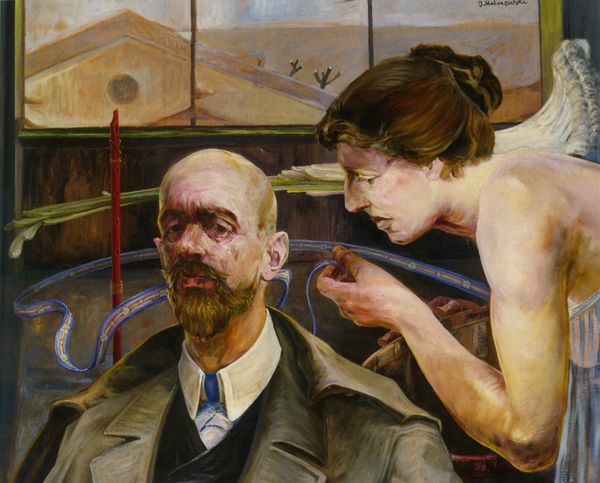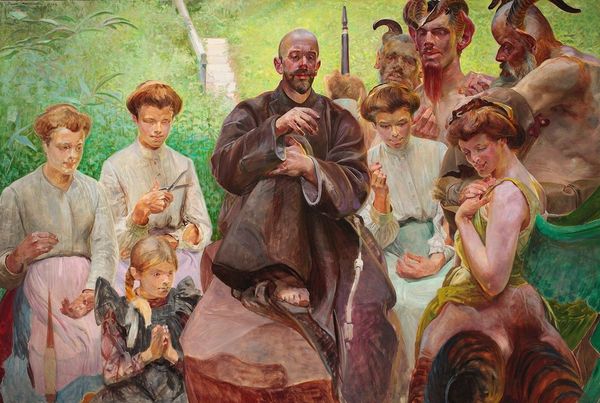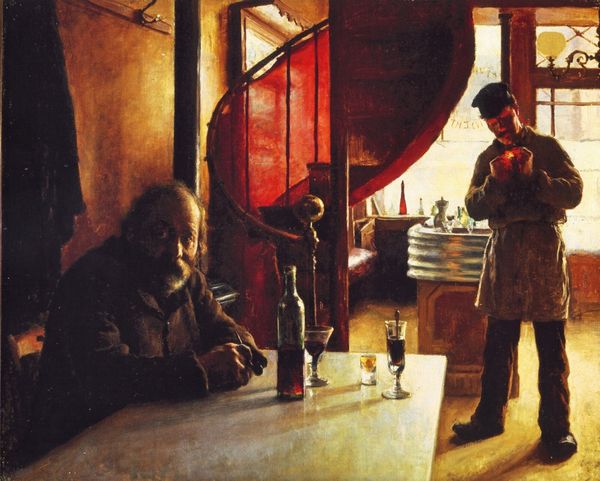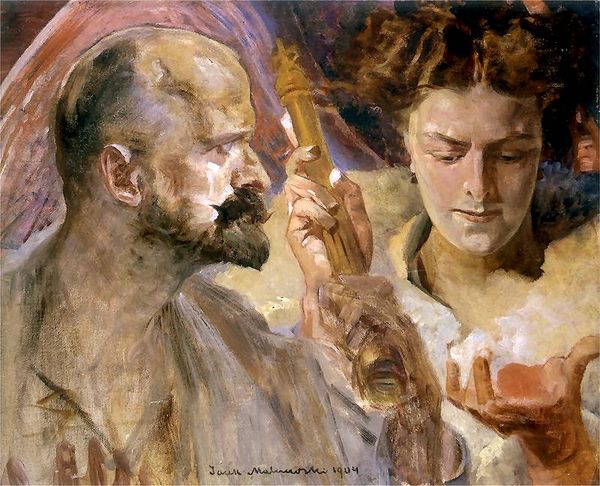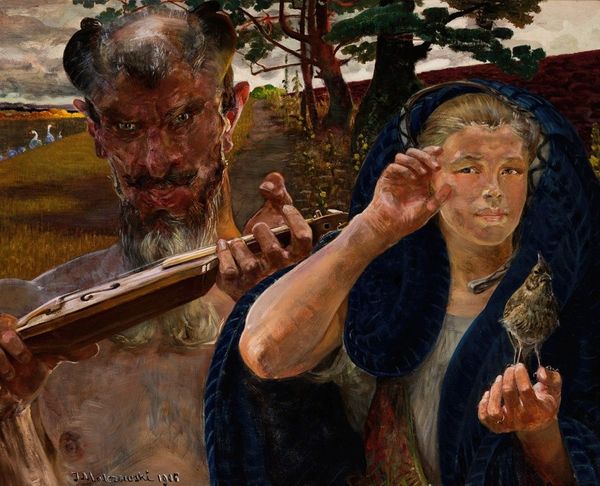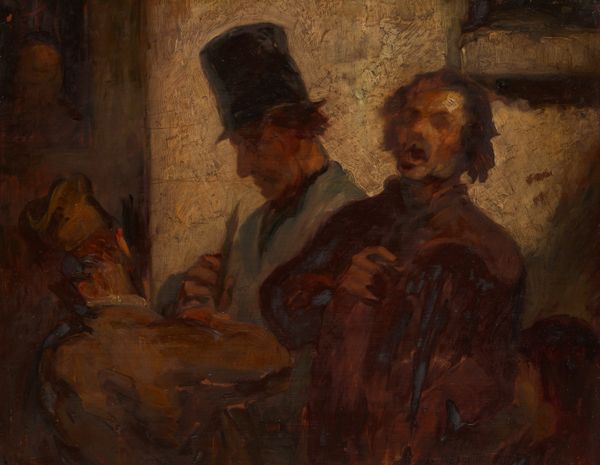
oil-paint, impasto
#
portrait
#
oil-paint
#
oil painting
#
impasto
#
neo expressionist
#
symbolism
#
portrait art
Copyright: Public domain
Editor: This oil painting is titled "Farewell to Atelier" by Jacek Malczewski. I find the figures quite haunting, and the composition unsettling with the artist positioned centrally but with a pensive gaze and rather ambiguous symbols, such as the knives. What do you see in this piece, from your perspective? Curator: I see a powerful statement about the artist's position within a complex social fabric. This isn't just a goodbye to a studio, but perhaps a commentary on leaving behind certain artistic conventions or expectations tied to social structures. Who gets to create, who is allowed to leave, and what must be sacrificed? Editor: The "sacrifice" part makes me think about the women in the painting. What role do you think they play here? Curator: Exactly! Are they muses? Are they embodiments of the artistic tradition that Malczewski feels compelled to leave behind? I think the way their gazes avoid his reveals an uncomfortable dynamic about the male artist and his subjects during a time when society had many norms about gender and expectations of representation. He seems trapped by their gaze even when they appear to avoid looking at him, bound to those traditions while also fighting against them. Editor: That makes me wonder about the ladders and studio background, as if it were a stage and the artist himself its performer. Curator: Absolutely. Think about the socio-political context in which Malczewski worked. Poland was partitioned. Artists became key figures of resistance and cultural identity. Perhaps he questions that assigned role, the pressure to represent, to perform national identity. It goes far beyond a literal farewell, wouldn’t you say? Editor: Yes, now I understand why this painting is so striking. It’s much more complex than a simple farewell. Curator: Precisely. The painting challenges viewers to question art’s role as both reflection and shaper of our identity within evolving socio-political contexts.
Comments
No comments
Be the first to comment and join the conversation on the ultimate creative platform.

